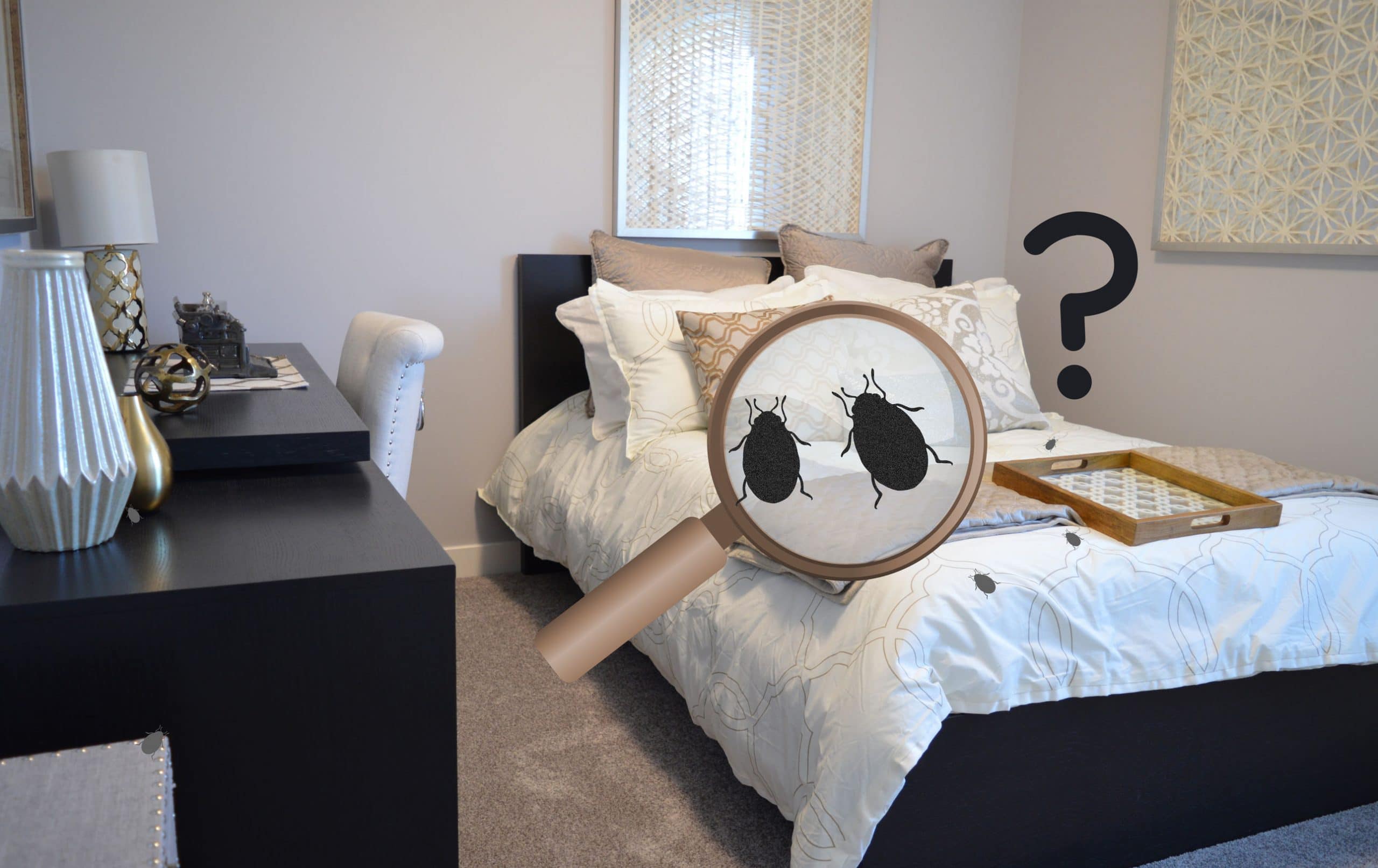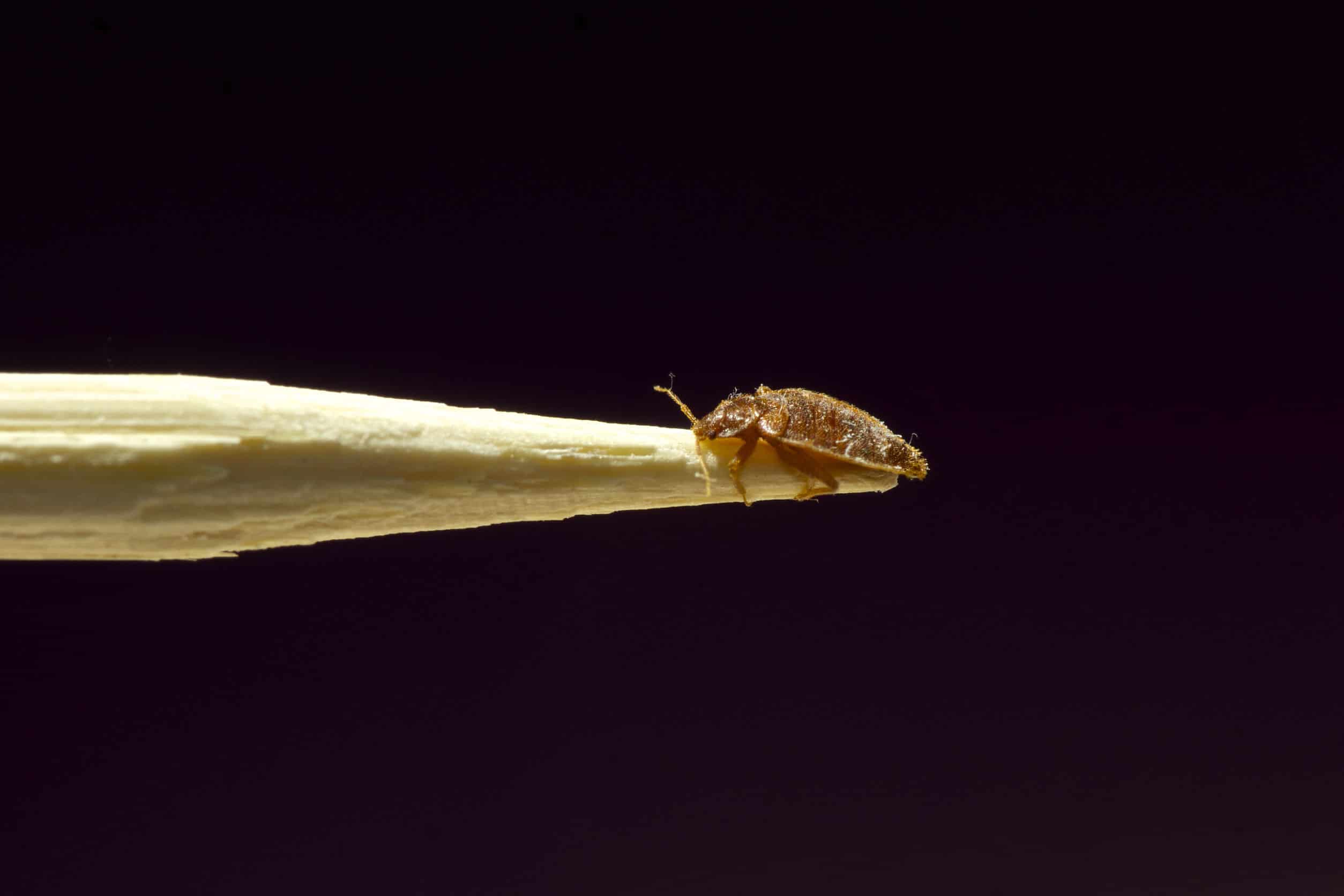Traveling? How to Keep Bed Bugs from Coming Home with You

Spring break is approaching, and summer afterward. It’s just about the time most people start planning vacations – where to go, what to do, what to see. However, there’s a looming threat hanging over the modern travel industry, and it has six legs: the bed bug.
With easy and affordable travel on the rise, bed bugs have become a serious problem for vacationers. It’s all too easy to go on a fun family trip and end up bringing home an infestation.
If you’re worried about bed bugs affecting your travel plans, you can prepare in advance. Understand the signs of bed bugs in your accommodations will help you leave them at check out.
Warning Signs of Bedbugs
You’re unlikely to see an actual bed bug in your hotel unless the infestation is serious. At their largest, they reach about a quarter of an inch long. If you do see one, don’t walk, but run to the checkout desk.
Normally, they’re nocturnal so you’re more likely going to be searching for signs instead of actual creepy-crawlers. The biggest clue there are bed bugs in your room? Stains from their droppings.
Pull back the sheets — black or brown speckles around the edges indicate the presence of bed bugs. You may also see discarded exoskeletons or eggs. If you see any of these signs, it’s time to get a new hotel room.
Properly Searching Your Hotel Room
To properly search your hotel room, use a flashlight. You want to inspect tight nooks and crannies where bed bugs will be able to hide. Places to look include:
- Seams in the mattress
- Inside the pillowcase
- Cracks and joints in the headboard
- Corners of the bed frame
- Between carpets and baseboards
If you do see bed bugs, you need to change rooms, preferably to somewhere at least two stories away. However, even if you don’t find any, there may be a few still present. Taking other precautions will help you leave bed bugs behind when you go home.
Four Ways to Avoid Bringing Bedbugs Back
The most common way that people bring bed bugs home with them is in their luggage. Bed bugs hitch rides in clothing, towels, and soft-bodied suitcases themselves. Understanding where bed bugs like to live lets you keep them off your things.
Keep Your Clothes in Your Luggage
First and foremost, don’t leave your suitcase on soft furniture. Resist the temptation to throw your laundry on the corner armchair or your suitcase on the other bed. It’s all too easy for bed bugs to crawl into and onto your possessions in that situation.
Put Your Luggage on the Luggage Rack
Instead, leave your suitcase on a luggage rack. Furthermore, keep your laundry inside your suitcase and seal it shut so nothing can get inside. Some people even wrap their suitcase in a plastic garbage bag to make it impervious to insect hitchhikers.
Wash and Dry on Ultra-High Heat When You Get Back
When you get home, you might still be worried about bed bugs. If you want to be safe, you can “fry” your laundry. Everything that came with you, dirty or not, should go through the wash on a high-heat setting. Then dry it all, again on high heat. That should kill any bed bugs that hitched a ride there.
Inspect Your Suitcase in the Shower or Tub at Home
Your suitcase is a little trickier. You can inspect it in your shower or bathtub. Bed bugs won’t be able to escape in that kind of smooth porcelain environment. Check your bags for the same signs as you searched your hotel room for, and if you spot any, leave your suitcase outside.

Bed bugs are unpleasant and make travel stressful. They don’t need to ruin your vacation, though. By inspecting your hotel room and taking care of your things, you should have a perfectly safe vacation and come home bed bug-free.
About the Author:
Daniel Mackie, co-owner of Greenleaf Pest Control, is a Toronto pest control expert and a regular guest on HGTV. He is renowned in the industry as an innovator of safe, effective pest control solutions. Mackie and business partner Sandy Costa were the first pest control professionals in Canada to use detection dogs and thermal remediation for the successful eradication of bed bugs. In his free time, he is an avid gardener.





You must be logged in to post a comment.